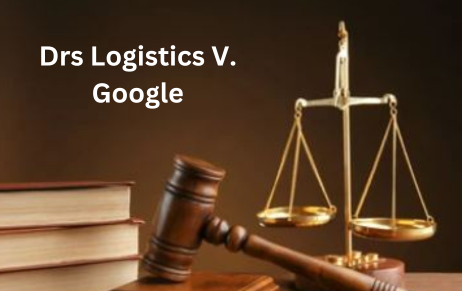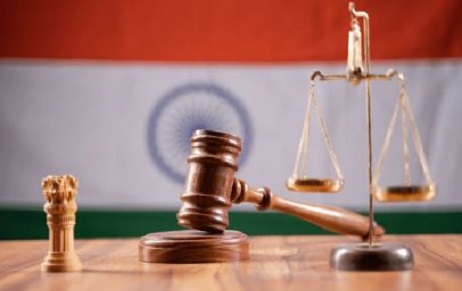ABSTRACT The project employs doctrinal research methods, i.e. secondary research which involves writing on basis…
Drs Logistics V. Google
INTRODUCTION
Businesses seek to lure customers to the brand by using Google Ads word program, Link tags, Deep-linking, and Meta Tagging. Search engine marketing has a significant advantage in that it displays useful advertisements next to targeted consumers at the exact time the consumer indicates his or her curiosity while browsing the web. As a result, the main goal of online advertising is to demonstrate the most relevant ads to the right customers at the correct time.
FACTS OF THE CASE
In the latest instance of “DRS Logistics Pvt. Ltd & Others vs Google India Pvt Ltd & Others[1]”, the Delhi HC dealt with the issue of third-party/competitors using the Complainant’s trademark “Agarwal Movers and Packers” as Key phrases on the search engine of Respondent and enabling the internet sites of its competing companies to be showcased as a popular search consequence when a customer comes the Plaintiff’s brand name. The Claimant also stated that despite a couple of beneficial decrees against 3rd party advertising companies, violating copyright use of the brand name has still not been deactivated. Google India has been named as the claimant and Google LLC its parent organization as the defendant. Justdial has been named as Defendant No. 2 by the claimant in the case.

Google (Defendant) asserted that the hidden utilization of brand names as key phrases does not constitute “use” under the Trademarks Act 1999, but neither does it constitute patent infringement or passing off.
The respondents also claimed that Google’s supported outcomes method is distinct from the method used to produce organic traffic by the use of metatags. Google asserted that there are numerous variables engaged when a promotion is showcased by the algorithm in use by its Adwords program, and they are not solely for monetary payment. Though distinct, search terms and metatags are being used to demonstrate actual relevance and seem to be at the top of the search engine results result list, regardless of whether natural or financially supported. The Respondent (Google) also claimed that this is a middleman and has no responsibility to consider whether the advertiser’s key phrase is a trademark. As a result, Google is entitled to the benefit afforded by “Section 79[2] of the Information Technology Act of 2000.”
ISSUES INVOLVED
- The point of concern was whether hidden use of a corporate logo constituted “use” under “Sections 2(2)(b)[3] and 2(2)(c)[4] of the Trademark Act.”
- As to if using a brand name as a word or phrase by a 3rd person constitutes a patent infringement and passing off?
- Is it true that using a mark as a word or phrase redirects traffic from the initial proprietor’s webpage to the advertisers?
- Is Google a middleman for obtaining protection under “Section 79 of the Information Technology Act of 2000?”
JUDGMENT
The HC of Delhi issued the judgment, guiding the Respondent’s Google India and Google LLC to probe the Complainant’s customer complaint about the use of their brand name as a word or phrase in advertisements and to determine whether this use amounts to infringement of trademark or passing off. Furthermore, if Google determines that such search term usage constitutes a violation or passing off, the advertisements should be removed from their webpage.
Before the order issued by the High Court of Delhi in this case, the order was issued by the High Court of Madras in the case of “Consim Info Pvt. Ltd vs Google[5]” (2013) functioned only as a convincing worth and was not conclusive in nature by referring to the use of 3rd party trademarks as key phrases as an infringement of trademark because the trademark in use by Consim was informative of its offerings.
The Delhi High Court ruled in its decision that using 3rd party trademarks as key phrases by web pages constitutes ‘Use’ and infringement of the trademark. The DHC’s order straightforwardly holds Google’s Ads Word scheme responsible for the infringement of the owner’s proprietary information.
ANALYSIS
Google’s Ad Words scheme was a large marketing business that Google relied on to make a lot of money. This program assisted advertisers in paying for promoting their products by connecting them to relevant keywords and phrases or findings. As a result, consumers looking for a good or service to purchase will not have to pay the fees to search online on the web browser.
As a result, it is inferred that the item marketers were obliged to purchase search words based on the maximum bid for their advertisement to be energized on the Website while still being went looking. When consumers use a search engine to search for a service or product, the web browser returns two types of results.
Keyword marketing is an instrument that enables search engines and item advertising companies to showcase advertisements that are customized depending on customer search queries. When a customer completes an ad containing key phrases bought by the businesses, the companies have to pay the pricing to Google.
Infringement of a trademark occurs when a particular side uses another registered party’s trademarked name as a search term to link to its site to promote its services and products. This activity has a massive effect on the registered mark owner’s company.
Author : Kaustubh Kumar is a fourth-year law student at the National University of Study and Research in Law, Ranchi, in case of any queries please contact/write back to us via email to chhavi@khuranaandkhurana.com or at IIPRD.
REFERENCES
DRS Logistics v. Google: Revival of the Third-party Trademark as a Keyword Dispute
https://www.mondaq.com/india/trademark/1155434/drs-logistics-vs-google-liability-for-using-third-party-trademarks-as-keywords
https://indiankanoon.org/doc/39453430/
https://swaritadvisors.com/blog/keyword-dispute-between-drs-logistics-vs-google/amp/
M/S DRS LOGISTICS (P) LTD & ANR. V. GOOGLE INDIA PVT LTD & ORS.,
[1] DRS Logistics Pvt. Ltd & Others vs Google India Pvt Ltd & Others, CS (COMM) 1/2017
[2] Information Technology Act, § 79, (2000)
[3] Trademark Act § 2(2)(b)[3], (1999)
[4] Trademark Act § 2(2)(c)[4], (1999)
[5] Consim Info Pvt. Ltd vs Google, (2013) PTC 578 (Mad) (DB)



